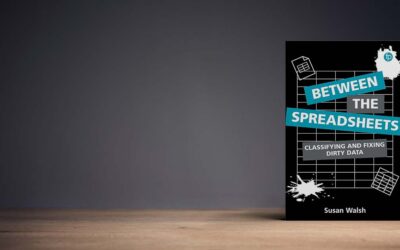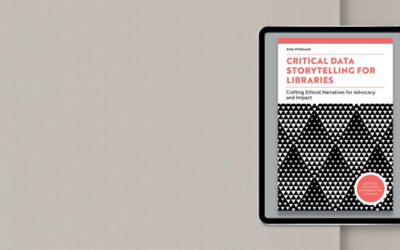Interview with the Author: Cathryn Copper on The Experimental Library
Lauren Hays
I recently had the pleasure of interviewing Cathryn Copper who wrote The Experimental Library: A Guide to Taking Risks, Failing Forward, and Creating Change. The book will be available from ALA this fall.
1. Please introduce yourself to our readers.
I’m Cathryn Copper, Head of the Eberhard Zeidler Library, the library for architecture, landscape, and design at the University of Toronto. I’ve had the opportunity to lead three architecture libraries in my career, all different in their own way. What I love about architecture libraries is I get to combine my interests in research and architecture and surround myself with creative people. Over the years working with architects, I’ve learned so much about the design process and design thinking that I’ve been able to apply to my work in libraries.
Throughout my career, I’ve also had an ongoing interest in technology. More specifically, how to adopt new technologies in libraries, not simply as a service—more interesting to me is how emerging technologies can change our existing workflows and modernize information delivery. Early in my career this meant looking at mobile technologies and that has morphed into an interest in augmented reality and artificial intelligence.
2. Briefly summarize The Experimental Library: A Guide to Taking Risks, Failing Forward, and Creating Change.
The Experimental Library is about creating cultures of trying new things in libraries. It maps techniques used to advance startups and technology companies to other sectors, like libraries. The first part of the book dives into what makes a culture of experimentation, the second part presents a method for experimenting, and the last part discusses the importance of failure and how to bring cultures of experimentation to sectors like libraries. Examples of experiments in libraries and other sectors are sprinkled throughout the book.
3. Why did you decide to write this book?
Actually, an editor approached me about writing a book after they read an article I wrote for C&RL News about experimenting. I knew I had enough to say on the topic and worked on the proposal during COVID lockdowns. Eventually, I pitched the idea to ALA-Editions after another ALA author interviewed me for their book and also suggested I write a book on experimentation. This time I had a proposal ready to go.
4. What are two things you hope all readers walk away from the book with?
First, the big message I hope to get across in the book is that experimenting is a process, but it is so much more than that. It is a culture—a way of thinking and operating. Once I figured that out, it changed the way I approach more than just the work I do in libraries.
Second, I’m quite certain every library feels underfunded and understaffed. We all have incredible ideas of what we could do with more funding or another full-time position, yet most of us are not going to get either of those things, and moving ideas forward shouldn’t depend on them. Experimenting and prototyping are realistic ways of moving new ideas forward without having to make big asks.
5. In the book, you share processes used by startups. Why do you think processes used by startups are a good fit for libraries?
The number one thing we can learn from startups is that most startups fail. Yet, even knowing there is a high rate of failure, people in startups who are passionate about their idea still go for it. They realize that failing and failing again is necessary to get to a breakthrough. It is part of the process. And, the process, which involves prototyping, reiterating, making a pitch, and getting buy in, works.
What I’ve seen from many libraries, is a fear of taking risks on new ideas, and more so, a reluctance to sunset legacy services. That’s where the startup process fits. The message is that it is okay if a service that once served a purpose no longer does. Similarly, by starting with a prototype, testing it, and developing it in iterations, you can gain traction when launching new ideas.
6.What are two primary hurdles that block experimentation in libraries?
Compared to other sectors, libraries are risk-adverse organizations. There are legitimate, historical reasons why libraries operate the way they do. But, it can be a hurdle when you are trying to move new, sometimes radical, ideas forward. The problem is how rapidly user needs and information seeking behavior are changing—and risk aversion does not lend itself to adaptation.
The other hurdle will be familiar to almost everyone because it’s workloads. Shifts in our role have required many a librarian to become a jack-of-all-trades. Sometimes the thought of taking on one more project can feel overwhelming, and I get that. However, that’s where experimenting actually makes new projects manageable, it’s just not a concept that has been widely deployed across libraries. Experiments help break big projects into attainable tasks.
7. What suggestions do you have for overcoming those two hurdles?
Start experimenting! The first step is proving a concept. Changing culture takes time but it can be a grassroots effort.
8. Is there anything else you would like to share?
I truly feel we are at the beginning of an experimenting revolution. It is the way to do work in the future. Technology companies have proven the concept, and now it is up to the rest of us to get on board or not. We are also at a moment to rethink how information is delivered. The rise of artificial intelligence is just one example. Adopting an experimenting mindset is the ticket to becoming a proactive profession. Then, instead of responding to new technologies and user needs we will be the ones inventing them.
Lauren Hays
Dr. Lauren Hays is an Assistant Professor of Instructional Technology at the University of Central Missouri, and a frequent presenter and interviewer on topics related to libraries and librarianship. Please read Lauren’s other posts relevant to special librarians. Take a look at Lucidea’s powerful integrated library systems, SydneyEnterprise, and GeniePlus, used daily by innovative special librarians in libraries of all types, sizes and budgets.
Never miss another post. Subscribe today!
Similar Posts
End-of-Calendar-Year Reflections for School Librarians
The end of the calendar year offers school librarians a chance to reflect on what’s working, make thoughtful adjustments, and plan for the year ahead.
Library Instruction: Learning Styles Are Out, Evidence-Based Practices Are In
For instructors and educators of all types, it’s vital to realize that evidence-based practices are more effective than catering to the myth of learning styles.
Interview with Susan Walsh:
Dirty Data, AI, and the 2nd Edition of “Between the Spreadsheets”
Author Susan Walsh discusses the new edition of “Between the Spreadsheets,” sharing insights on fixing dirty data, AI’s impact, and her COAT framework.
Interview with the Author:
Dr. Kate McDowell on Storytelling for Libraries
Dr. Kate McDowell shares how data storytelling helps libraries advocate, counter misinformation, and build trust for future generations.




Leave a Comment
Comments are reviewed and must adhere to our comments policy.
0 Comments